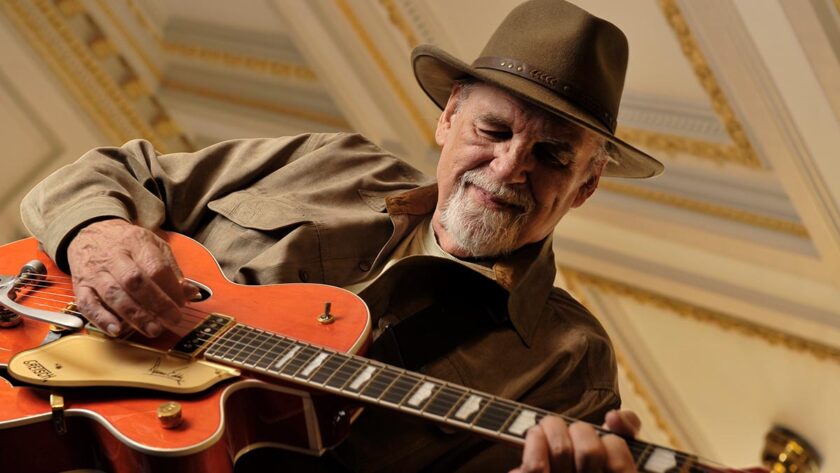Duane Eddy, renowned for pioneering the twangy guitar style that reshaped pop music in the 1950s, passed away on Tuesday in Franklin, Tenn., at the age of 86.
His wife, Deed (Abbate) Eddy, confirmed that his death in a hospital was due to complications of cancer.
Eddy achieved immense success as an instrumental recording artist during the late 1950s and ’60s. His distinctive sound, characterized by reverberating, staccato guitar playing, captivated audiences worldwide with hits like “Rebel Rouser” and “Forty Miles of Bad Road.” Notably, he played a pivotal role in establishing the electric guitar as the dominant instrument in rock ‘n’ roll.
Eddy’s influence extended far beyond his own recordings, inspiring countless guitarists, including George Harrison, Jimi Hendrix, and Bruce Springsteen. His impact on the music industry earned him the title of the first rock and roll guitar god, as noted by John Fogerty.
Despite being self-taught and unable to read music, Eddy’s innovative approach to the guitar, characterized by playing lead lines on bass strings and utilizing the vibrato bar liberally, set him apart. He was also known for his experimentation in the studio, such as simulating echo effects by placing a speaker inside a 2,000-gallon water tank.
Eddy’s career boasted 15 Top 40 pop hits from 1958 to 1963, including classics like “Because They’re Young” and “Cannonball.” His collaborations with producer Lee Hazlewood and backing band The Rebels yielded several iconic albums that showcased his twangy guitar style.
Born on April 26, 1938, in Corning, N.Y., Eddy began playing guitar at a young age. His musical journey flourished when he moved to Tucson, Ariz., and later Phoenix, where he met Lee Hazlewood and embarked on his professional career.
While his chart-topping singles waned by the mid-1960s, Eddy continued to release albums and remained influential in the rockabilly genre. His music experienced a resurgence in the 1980s with the release of Art of Noise’s reimagined version of “Peter Gunn.”
Eddy’s enduring legacy earned him induction into the Rock & Roll Hall of Fame in 1994 and the Musicians Hall of Fame in Nashville in 2008. He is survived by his wife, three children, a sister, grandchildren, and great-grandchildren.
Throughout his life, Eddy remained dedicated to his instrumental craft, famously remarking that his greatest contribution to music was “not singing.” Instead, he channeled his passion into perfecting his guitar skills, leaving an indelible mark on the world of music.















































